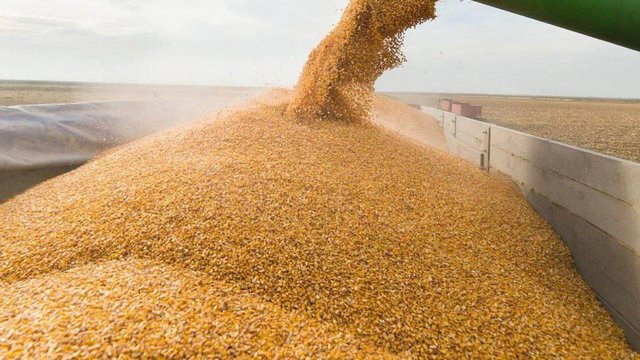No decision on extending ban on export of Ukrainian grain to Poland, Bulgaria, Hungary, Romania, Slovakia taken at meeting in Brussels

Following the meeting of the coordination platform on Ukrainian grain exports, no decision was made on whether the existing temporary ban on grain imports to Poland, Hungary, Romania, Slovakia and Bulgaria, which expires on September 15, will be extended.
This was reported to Interfax-Ukraine on Wednesday after the 9th meeting of the joint coordination platform, which was chaired by chaired by the Head of Cabinet of EVP Dombrovskis, Mr Hager, representative of the European Commission Miriam Garcia said.
According to her, representatives of five member states, Ukraine, the Republic of Moldova and the Commission took part in the first part of the meeting. “The Commission presented the latest forecasts on the market situation regarding harvest, trade and prices. Countries were invited to share the latest information. The Platform also discussed how to enhance storage capacity and reduce border crossing-time. Finally, there was an exchange on short-term actions to facilitate trade flows and on ways to support transport,” the representative of the EC told about the content of the first part of the platform meeting.
The second part of the meeting, according to Garcia, which was attended by representatives of Estonia, Latvia, Lithuania, Greece, Italy and Croatia, was devoted to alternative routes.
“In the context of this meeting, the Commission informed that no decision had been taken yet regarding the preventive measures that are set to phase out on 15 September 2023. In any case, the Platform will continue to meet on a regular basis and monitor grain imports from Ukraine,” the representative of the European Commission stated.
As it is known, in May 2022, the EU decided to suspend import duties, quotas and trade protection measures on Ukrainian exports to the European Union – known as autonomous trade measures – to help alleviate the difficulties faced by Ukrainian producers and exporters after the invasion of the Russian Federation. At the same time, after the occurrence of logistical problems in Bulgaria, Hungary, Poland, Romania and Slovakia caused by the import of wheat, corn, rapeseed and sunflower seeds originating from Ukraine, exceptional and preventive measures for their import came into force on May 2, 2023, which were extended on June 5.










